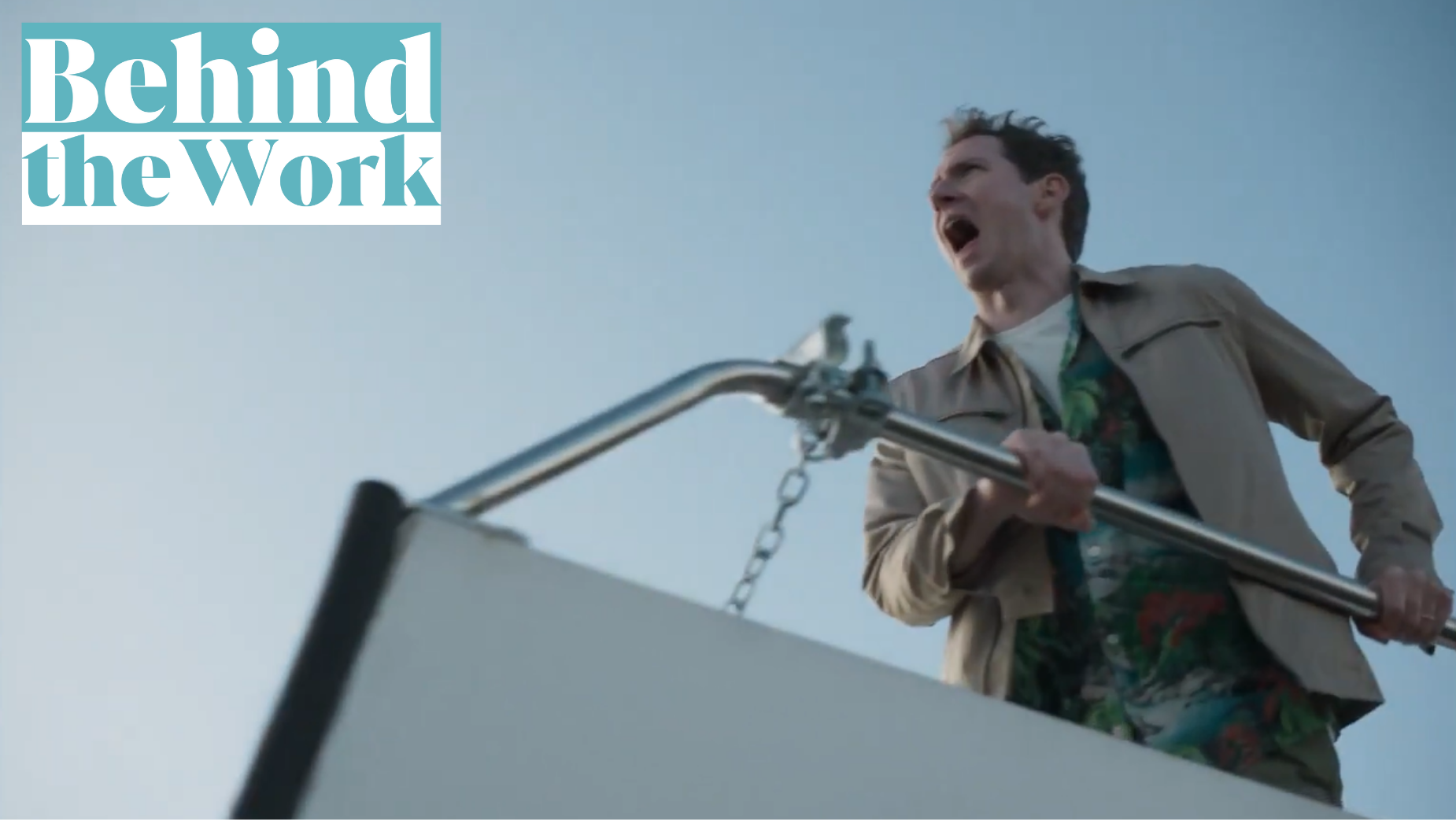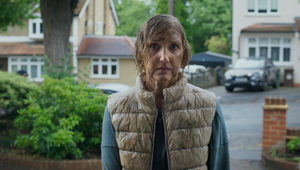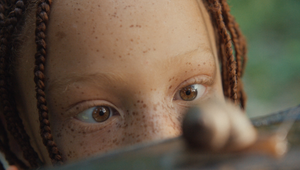
How Specsavers Cracked the Code to Funny Ads with ‘Should’ve’

British multinational optical retail chain Specsavers came out with its newest iteration of the ‘Should’ve’ campaign earlier this month. Directed by comedy specialist Declan Lowney (‘Ted Lasso’ and ‘Father Ted’), the spot continues the brand’s journey through hilarious scenarios that prove the importance of getting your eyes checked.
In typical Specsavers manner, the ad introduces us to Greg and Ella - a couple about to embark on their holiday. And while Greg seems to have prepared his best Hawaiian shirt, he forgot his glasses (and probably his appointment too) at home. As we watch him rush through the airport, frantically checking departure boards and pushing through various crowds of people, we see Ella already boarding the plane.
Finally, Greg arrives at the tarmac which he presumes should be next to the aircraft about to take him and Ella to their beach escape. But of course, nothing’s this easy in a Specsavers ad.
Richard James, creative director at Specsavers, The Agency, tells us that when working on a new addition to the ‘Should’ve gone to Specsavers’ brand platform, which goes back to 2002, the team doesn’t usually go off a brief as such. Due to the latent knowledge about the platform, the team works its way through the new ideas by asking various questions to help stir the pot: “What do we want to do that’s different to the last one we made? Are there any cultural references we want to draw on? Will this be country specific, or will it need to work for all the territories in which we operate?”
Work on this particular spot started in February last year, and Specsavers were “quite intentional” in wanting to make something that had scale and was more a ‘laugh-out-loud’ funny rather than a gentler level of humour, reveals Richard.
“It’s a long process and finding an idea that works can be tough. Then selling it requires a leap of faith by the marketing team. Comedy doesn’t always feel funny when it’s just words on the page. It all comes to life in the production process – once the director is on board and you start to look at casting.”
Casting in particular was crucial when it came to this spot, shares director Declan Lowney. “Ed MacArthur made a fantastic lead in Greg. He has that ability to be a little bit cocky - like at the beginning when he arrives, quickly looks up at the departure board, gets it wrong, and then carries on oblivious,” he says. “But at the end, when he’s really under pressure and very stressed it was also important that we feel for him.”
As for Ella, Declan admits the team spent quite a while looking for her perfect match. “We wanted a calm and serene presence to counter the craziness that Greg was going through. She had to have the right degree of concern and relay that very quickly. Emma Connell is an actor I’ve worked with multiple times before, and I knew she could deliver this no problem. And they make a very believable couple, even though we never actually see them together!”
While ‘Airport’ was meant to level up both in humour and narrative from previous iterations of the campaign, the brand was wary of keeping the cohesiveness, which Richard believes is largely a function of keeping stuff in-house. Keeping the creative process in the family means that Specsavers are able to focus on building, rather than being in a “constant state of re-building”. This has inevitably led to what Rich calls “the ‘Should’ve legacy’”, which the team is always respectful of - they see their job as adding to it, not reinventing the wheel.

“The beauty of ‘Should’ve’ is that it’s an endless idea. There’s always another sight gag. Finding the ones that are worthy of investment is obviously a question of hard work and being super critical. Every time we start the process there’s a bit of nervousness around - and sometimes it takes a long time to get to ‘the one’.”
For ‘Airport’ in particular, Richard reveals there were a few things that made it rise to the top of the pile. Firstly, it’s relatability - “most of us have struggled our way through an airport at one time or another” - and then the fact that airports are full of obstacles. “It just felt like it was rich territory for comedy. It also gave us scale and a hyperbolic ending, both of which we wanted from this ad.” As for the scripts that didn’t make it - there were a lot. “I’m not going to say what they were as there were some crackers in there that we might make at some point. And I wouldn’t want to ruin the surprise, would I?”
As for the airport itself, Declan says the team shot the interiors on location at Stansted Airport and the runway scenes at Dunsfold aerodrome. “The team at Stansted are superb at managing film shoots,” he says. “And even though our crew numbers were hugely restricted, being able to use real life, deep backgrounds makes this so much more convincing than if we tried to populate it purely with extras.”
However, airports are not the easiest places to shoot, Declan admits. “While we’re in the airport complex we all have to wear high-viz jackets, and some passengers confuse us with airport staff. One very irate, American woman accosted me asking ‘Where the hell is Gate 84?’. Whilst I was trying to explain I didn’t actually work there, she talked over me, saying ‘this was the shittiest little airport [she’d] ever seen’. I merrily pointed her towards a Ryanair flight to Dublin instead.”

While jokes about having to wear glasses truly are, as Richard mentioned, endless (ask those of us who do wear them), there’s more to the Specsavers recipe - it’s their own brand of humour that audiences have come to recognise and love, beyond the ‘Should’ve’ sub-brand. “Comedy plays such a serious role for us,” shares Richard. “We’re in a relatively low interest category and so comedy or humour helps us get people interested. The purchase cycle for glasses is usually two years, so maintaining top of mind awareness is incredibly important.”
The challenge is twofold - not only is the purchase tendency for glasses sparse, but people en large aren’t too keen on visiting the audiologist or optician. Seeing that eerie hot air balloon in the distance through the tiny lens can actually even be a bit scary the first time. “Humour can help break down some of those barriers and make people feel good about a visit to the optician and to wearing glasses.”
So, naturally, those who have been dodging the eye test (or hearing test) for a while might be recognising themselves in the quintessential Specsavers humour. “We might not all be shepherds or vets, but we all have made silly mistakes - waved to the wrong person, got on the wrong bus, or taken a wrong turn. It’s pretty universal humour. It’s not surreal or aimed at any one particular demographic - it’s much more inclusive than that. In many ways it’s quite traditional, almost reassuring.”
Declan and Richard’s final thoughts are two, shaped more like advice: always check your gate number carefully, and if you’re squinting reading this, you should’ve gone to Specsavers!














